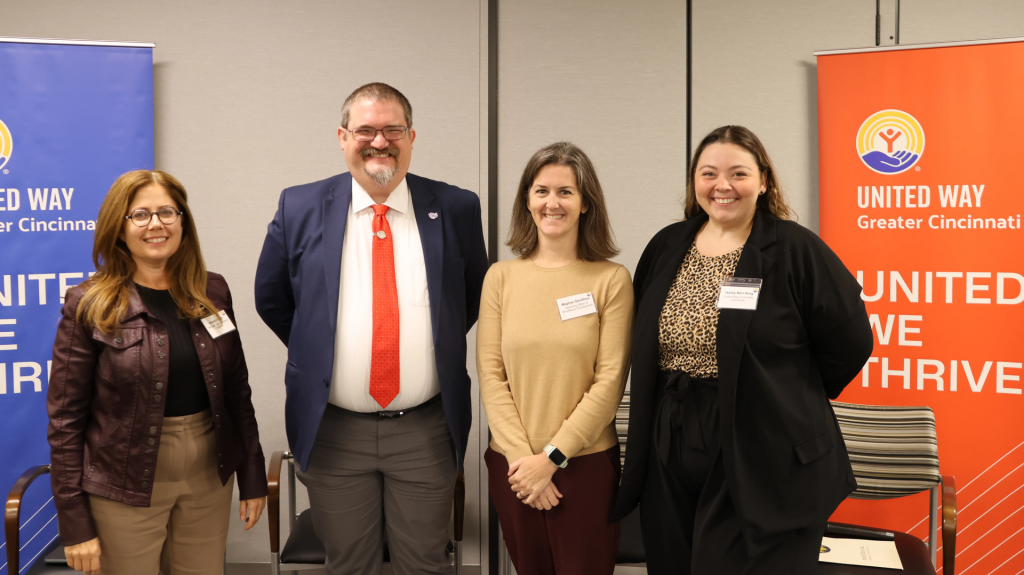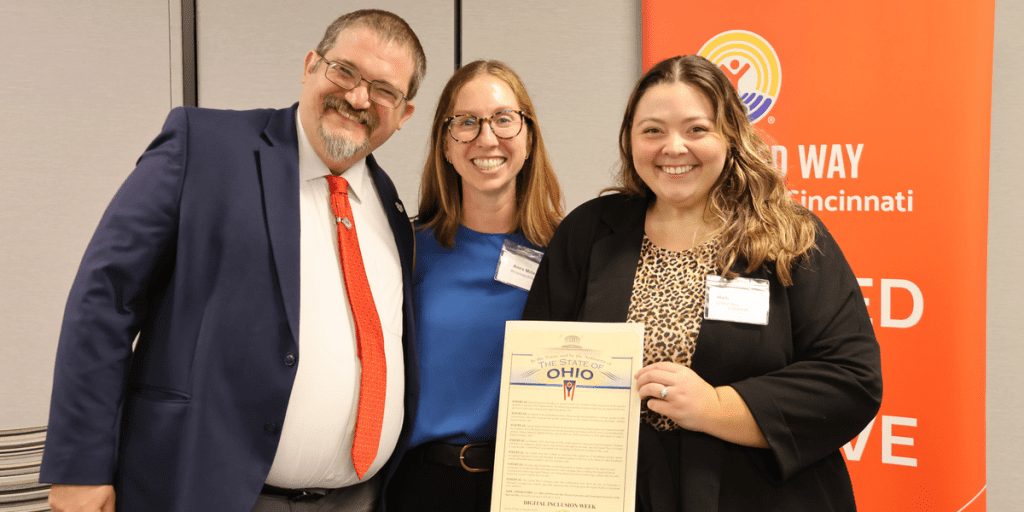In honor of Digital Inclusion Week, United Way of Greater Cincinnati’s latest Policy With a Splash of Coffee focused on the role digital access plays in education and workforce initiatives.

Panelists (pictured above) included Angela Siefer, National Digital Inclusion Alliance; Peter Voderberg, BroadbandOhio; Meghan Sandfoss, Kentucky Office of Broadband Development and Hailey Barr-King, United Way.
Understanding our digital world is no longer a luxury but a necessity. Without internet access and digital skills, students fall behind in school, job applicants miss out on opportunities and employees struggle to compete.
The National Digital Inclusion Alliance hosts Digital Inclusion Week from Oct. 6-10, to encourage efforts to expand digital access. This Policy With a Splash of Coffee was one of over 360 events held internationally.

In her opening remarks, United Way of Greater Cincinnati President and CEO Moira Weir announced Ohio Gov. Mike DeWine issued a proclamation recognizing Digital Inclusion Week in Ohio. The proclamation also credits United Way for its commitment to addressing the digital divide. The organization is the proud leader of Southwest Ohio’s Regional Digital Inclusion Alliance (RDIA).
Weir noted that federal actions are impacting our region’s digital access, specifically that funds from the Digital Equity Act (DEA) cancelled in May of this year would have served more than 84% of Kentucky’s population, 77% of Ohio’s population and nearly 80% in Indiana. United Way was recommended for an $8.8 million DEA grant before the administration froze funding.
Panelists discussed changes to the federal Broadband Equity Access and Deployment Program (BEAD), which allocates funding to states to build infrastructure that expands high-speed internet access. Specifically, they noted changes in the ability to use non-deployment funds. This particular bucket of BEAD funding is not used for building internet infrastructure, so there is potentially more flexibility in using these dollars to support digital skills initiatives or broadband workforce training programs.
“What we have been trying to do at the state level,” Voderberg noted, “is to emphasize how important it is to have infrastructure built, and also to reemphasize how important it is to make sure that we have digital skills.”
All panelists emphasized that digital access is critical for students and the workforce. Barr-King noted that the COVID-19 pandemic exposed gaps in the system that prevented many children from being able to reliably attend online classes. Lacking digital access and skills also keeps many people out of the workforce because digital skills are necessary for both the application process and the day-to-day functions of 92% of today’s jobs.
Expanding digital access is vital to shaping a thriving education system and future-ready. Restoring DEA funding would ensure everyone has access to key digital resources. Please take a moment to let your elected officials know you support reinstating the DEA.

